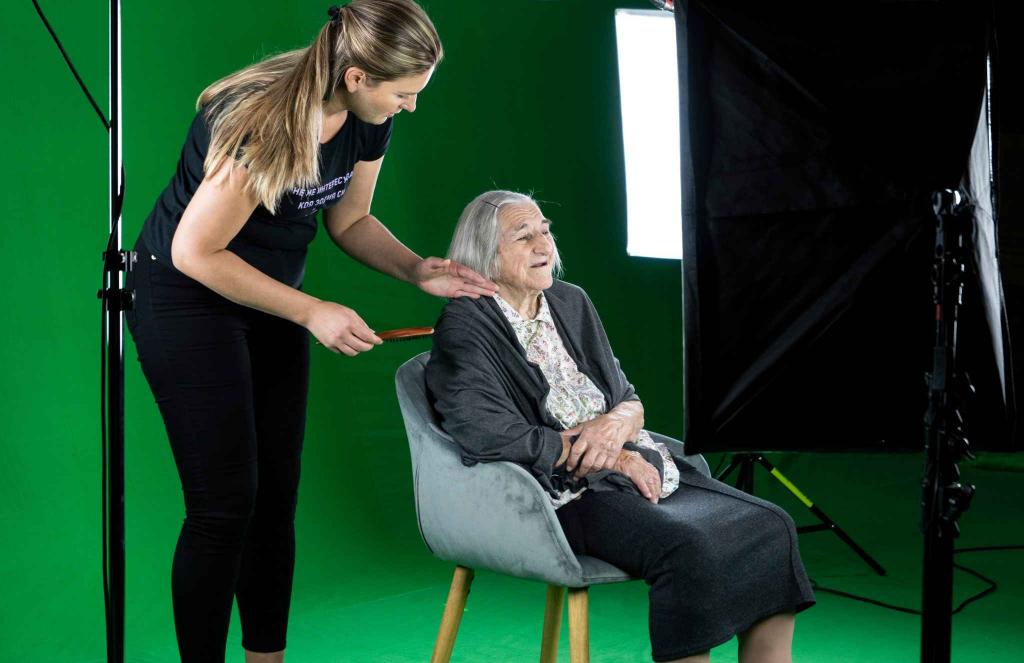Thessaloniki gets ready for its metro launch in November
The underground rapid transit lines have been under construction for almost two decades due to various project delays
 TheMayor.EU logo
TheMayor.EU logo 
Tzvetana Djermanova is the first of the camp survivors that you can interview on the portal, Source: Sofia Platform
An innovative project shows how history can be made vibrant with the help of cutting-edge tech
The Belene camp, located on an island in the Danube river, was the most notorious of the forced labour camps during the Communist regime in Bulgaria. That camp was established with the purpose of imprisoning and “re-educating” political prisoners – that is dissidents, religious leaders and opponents of the government.
During its operation in the 1950s, it is estimated that some 15,000 people passed through the penal colony, yet its painful legacy remains fairly unknown in Bulgaria and subject of controversy. As part of the drive to raise awareness and preserve historical memory, the Sofia Platform foundation has resorted to using artificial intelligence (AI).
The organization leads the Stories from Belene (Istorii ot Belene) project, part of which included interviewing survivors from the labour camp. The hundreds of hours of video recordings were then fed into an AI model to make these interviews more interactive for the viewers.
Visiting the program’s website gives you the chance to put on a journalist cap and become a researcher. The portal gives you a short tutorial with suggested questions, however, the entire model is quite intuitive and easy to use. The only drawback is that the testimonials are only available in Bulgarian, so you need to have some knowledge of that language.
Currently, you can only interview one of the survivors, an anarchist by the name of Tzvetana Djermanova, who’s spent four years of her youth in labour camps. You can either type your questions or ask them in voice using the microphone tool. Likewise, the answers are both written (in the chatbox) and given by the interviewee herself.
In essence, rather than sitting through an entire documentary footage of a long interview, the AI tool makes the material searchable, without sacrificing its primary source nature. If you happen to ask an inappropriate question or one which hadn’t been brought up during the original interview, the survivor tells you that she is not able to answer that question and offers instead to tell you more about life in the camp.
The first-person testimonials stories of six more survivors are currently being developed into AI models and will soon be available for interactive viewing.
In addition, the project portal provides viewers with the possibility to do a tour of the island, however, it is not virtual, at least not yet. There are short videos from different points of Belene, which you can view to get a more visual idea about the place today.

The underground rapid transit lines have been under construction for almost two decades due to various project delays

Now you can get your wine in Talence by paying directly in Bitcoin

That’s because the state has to spend money on updating the railway infrastructure rather than subsidizing the cost of the popular pass

Rethinking renewable energy sources for the urban landscape

The examples, compiled by Beyond Fossil Fuels, can inform and inspire communities and entrepreneurs that still feel trepidation at the prospect of energy transition

Now you can get your wine in Talence by paying directly in Bitcoin

The 10th European Conference on Sustainable Cities and Towns (ESCT) sets the stage for stronger cooperation between the EU, national and local level to fast track Europe's transition to climate neutrality.

At least, that’s the promise made by the mayor of Paris, Anne Hidalgo

The underground rapid transit lines have been under construction for almost two decades due to various project delays

At least, that’s the promise made by the mayor of Paris, Anne Hidalgo

Hostal de Pinós is located in the geographical centre of the autonomous region

Despite its church-y name, the district has long been known as the hangout spot for the artsy crowds

Urban dwellers across the EU are having a say in making their surroundings friendlier to people and the environment.

Forests in the EU can help green the European construction industry and bolster a continent-wide push for architectural improvements.

Apply by 10 November and do your part for the transformation of European public spaces

An interview with the Mayor of a Polish city that seeks to reinvent itself

An interview with the newly elected ICLEI President and Mayor of Malmö

A conversation with the Mayor of Lisbon about the spirit and dimensions of innovation present in the Portuguese capital














